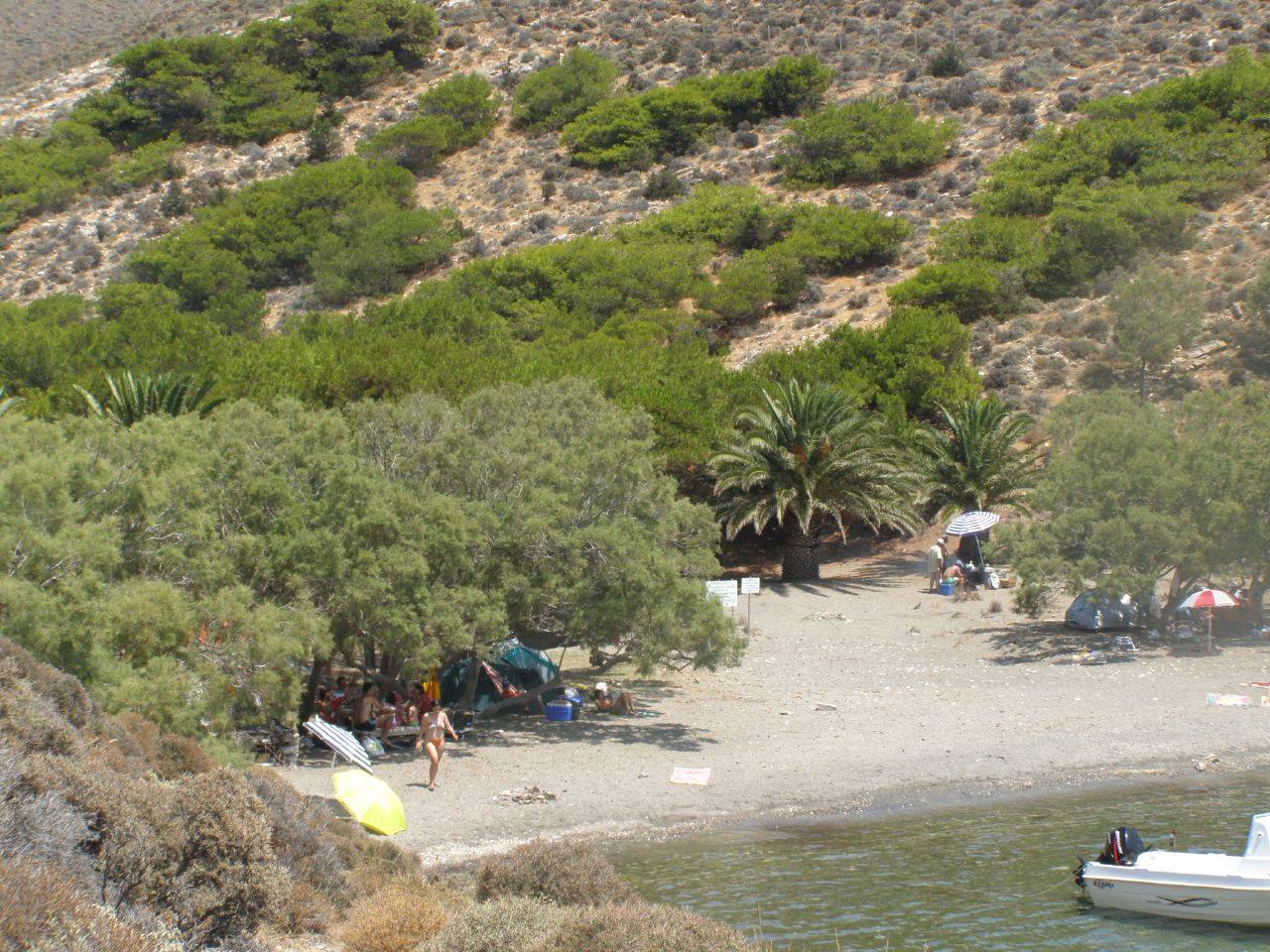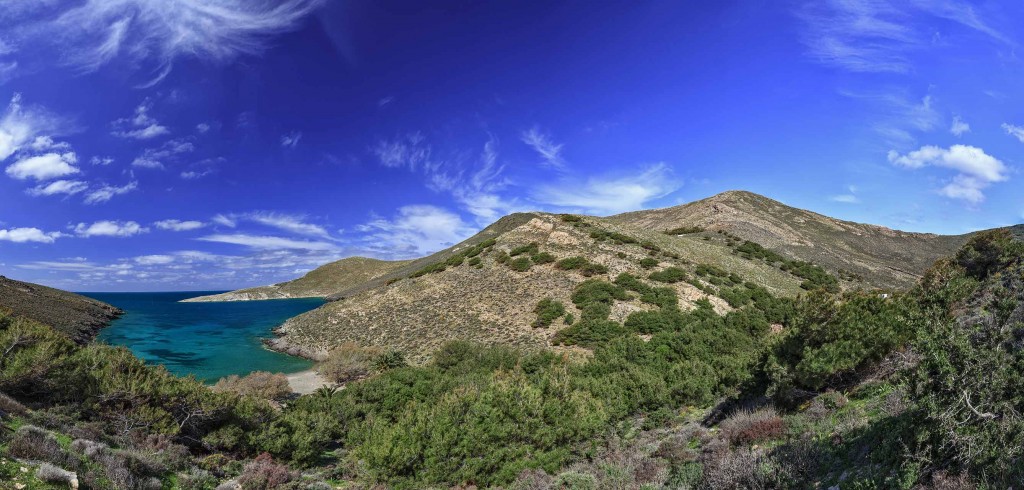I guess something wonderful happened on that trip, which made him think about what he's most worth in life, and dedicate the rest of his life to planting trees. Maybe again he just wanted to prove that forests can be revived in the deserted Aegean islands. For this purpose, "John" returned to Greece in 1964 with his son John the Younger and bought an area of 800 acres in Apano Meria of Syros, near the bay of Letters, fenced it to keep the goats away, dug with a hard fight two wells in the rocks and for a start he created a nursery, to start the long process of reconstitution of the island soil through tree planting. With determination and courage he planted tens, hundreds, thousands of seeds and waited to realize his vision:
For the inhabitants of Apano Meria, "Giannis" became a local man, who was seen coming and going by taxi to Kampos and then walking for a while on the path with rain or cold until he reached the end of the island and his favorites. trees that were considered by the locals to be "useless junk". 
Every year, "Giannis" spent several months there taking care of and supervising the care of the trees. He began to learn from the farmers of Apano Meria the way of arid cultivation, and after making grooves on the windless slopes he planted saplings in a row, mainly Aleppo Pine. A puddle was dug around the root of each tree to retain rainwater and moisture, while continuous digging kept the soil fluffy and reduced water evaporation. He regularly enriched the soil with the necessary trace elements, such as nitrogen, which is rare in the area of the Letters. In those early years he planted over 10,000 trees. About 5,000 of them survived, some a little bigger than bonsai, due to the strong wind, but others reach up to 6 meters. Although the soil is barren, rain is rare, the sun in summer is merciless, the wind is constant and strong and the salt of the sea burns the vegetation, the trees thrive. And today, thanks to the struggle of "John", the area of Letters, which has been the refuge of windswept seafarers since ancient times, has been transformed into a paradise anchorage for modern boats, while the tall trees that fill the beach of Gria Spilia, more known today as the "American" beach, have become the favorite destination for residents and visitors to the island.
These first years, full of pure altruism and the passion to restore the natural beauty of the forest on a piece of land, as it would be a few hundred years ago, recorded "John" in his book "Island in Greece".

This fight, a fight that in ancient times took the form of the confrontation of old Santiago with the sharks and Captain Ahab with Moby Dick, all these ideal figures of American literature who were inspired by the passion of man to dominate nature, has now changed, because "John" understood that it is a vital need to restore the damage that man has meanwhile caused to nature. "Bare mountains full of rocks and asparagus became man and the greedy goat became the islands and not the lack of rain," he said. "Probably the rain stopped falling because the vegetation disappeared, so we need to know how to restore the forests."
John H. (J. John Pearson), an American government and United Nations economist who became famous in America for the trees he planted in Letters, died September 14, 2001, in Massachusetts, United States, at the age of 95 years old and according to his last wish, his ashes were scattered in his favorite forest, "in the American".

------------------------- Πηγή: του Τέου Ρόμβου"ΓΑΛΕΡΑ" |